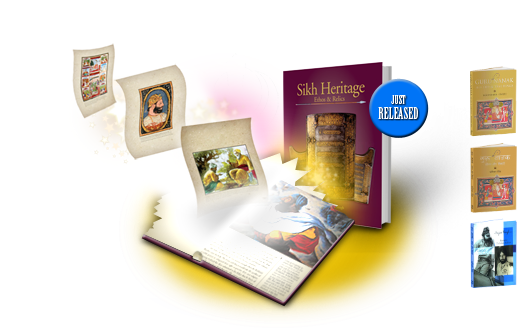TWO words that are indelibly associated with the Oxford dictionaries in my mind don’t figure in them, in spite of the steady march of Indian expressions that have now been accepted as English! They are “unparh” and “jahil”-the Punjabi words for illiterate and uncouth.
How? Therein lies a story that has interesting elements. The place: Bhupindra Kothi, Patiala, one of the minor palaces in the city. Time: 6 pm. Dramatic personae: A man with a large turban and a youngster wearing an under-turban or a patka. Scene: The man fuming and fretting, and uttering the aforesaid words repeatedly.
I was wary, since I thought that the words were directed at me. It was to my immense relief that I realised that some unnamed others were the target. The gentleman had come home to meet my parents, and while they were out for a walk, I was trying to entertain him. His angry demeanour notwithstanding, there was something that attracted the 10-year-old me to him.
“How dare they say that the Sikh icon was cyclothymic,” he thundered. I ventured to ask him what cyclothymic meant. “Don’t you know? Get the dictionary!” I scurried away to the nearest bookrack. I thought the world was too big for the small ELBS dictionaries we used for school and thus picked up the Shorter Oxford Dictionary, which despite its name, was quite hefty. I went to the right page to find out that the word meant “a mental state characterised by marked swings of mood between depression and elation.” In the meantime, the gentleman spoke about words, linguistics, philosophy and history, and I just sat listening, mesmerised.
By the time my parents came, he had inculcated in me a deep desire to know more about things in general and the beginning of a habit to consult the dictionary when in doubt. Nowadays, instead of thumbing through the pages, I tend to use my fingers to type out my query, just as, instead of writing in longhand, I input my articles straight on a computer. I thus tend to see the online editions of various dictionaries, although I must confess that I am not one of the many subscribers who pay around Rs 14,000 to access the digital version of the Oxford English Dictionary (OED), the largest and most comprehensive of the dictionaries published by Oxford. It gets 20 lakh hits a month. The many free online dictionaries widely available on the Net serve my needs.
OED takes many years to compile. The latest print edition came out in 1989 and is in 20 volumes. It will take many years for OED’ s new edition, which is still being compiled, to be published, but even then, the news that when it is finally completed, it may only be online, disturbed me.
I still use a fountain pen to write, and consult print dictionaries, especially when offline. On the Net, you type the word and get its meaning. However, when you open a printed dictionary, you look for the page, and then the word nestled among others…there is something to be said for meandering that happens, which often takes you a pleasant detour.
With this memorable encounter, and many that followed, Sirdar Kapur Singh, ICS, ignited my mind. He put on the path of lexographic discoveries and set me off on a journey that I still enjoy, although a bit more while thumbing through the pages of the dictionary than by accessing it online.
The article by Roopinder Singh was published as a Middle in the Editorial page of The Tribune on September 3, 2010.
A file photo of when Sirdar Kapur Singh visited our home in Amritsar. I am in the extreme right hand corner, and he is standing next to me, second last from the corner:

From Giani Gurdit Singh



